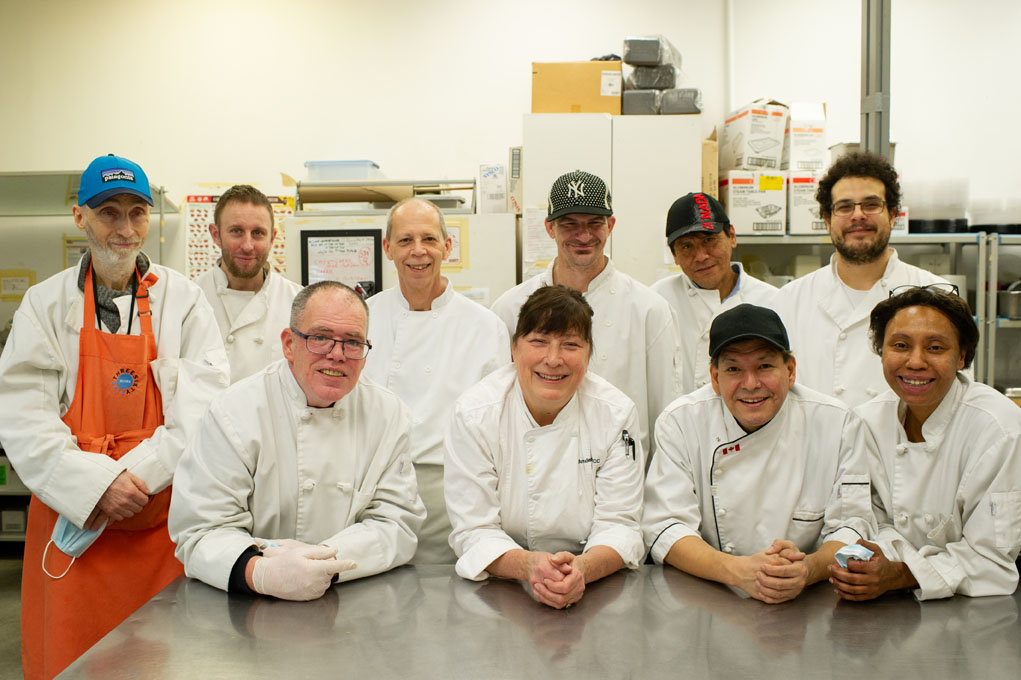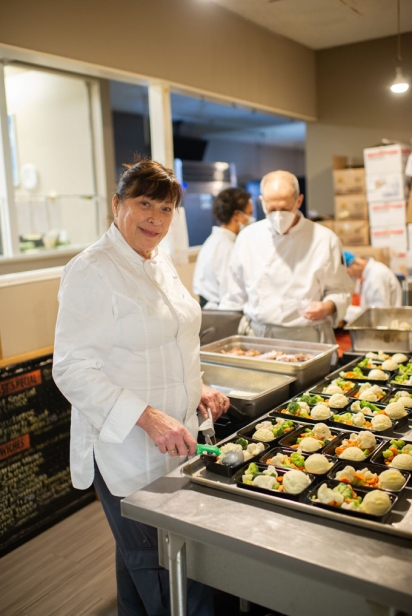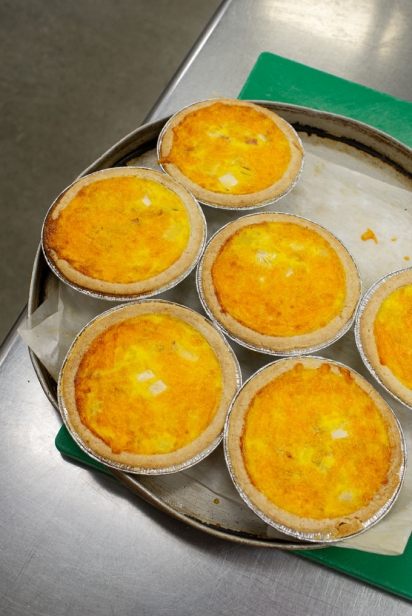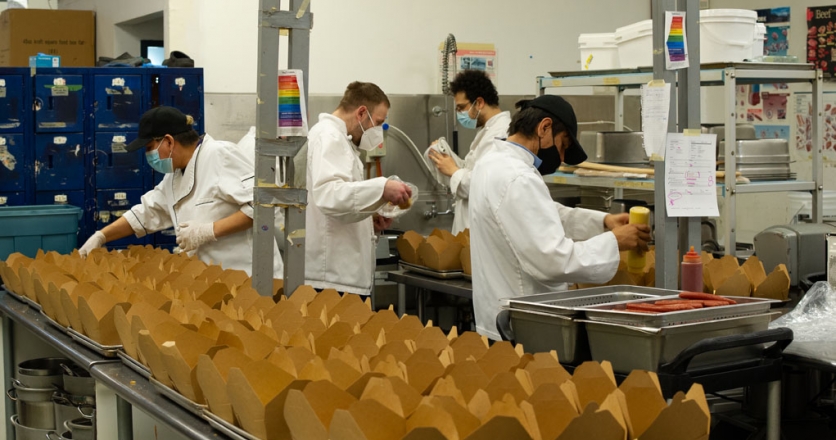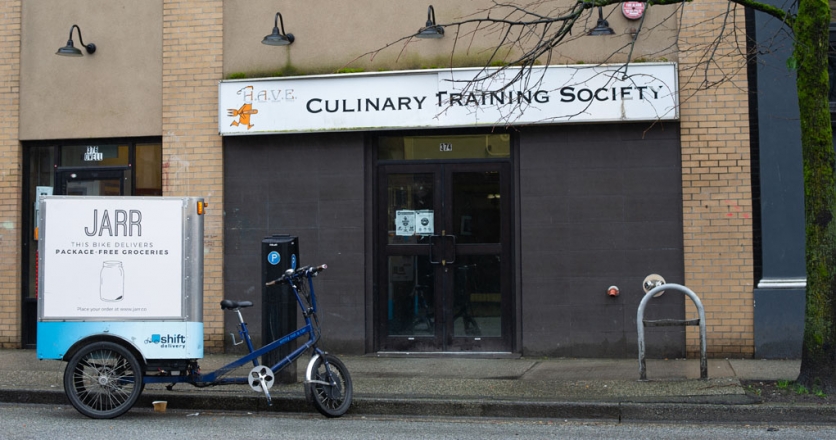A Culinary Program with a Difference
When the Hope Action Values Ethics Culinary Training Society was launched in 2007, Amber Anderson juggled many roles, and took on any task that needed doing. “If a toilet went out, I was the plumber,” Anderson recalls with a laugh. “It was definitely a learning curve.”
Since those early days, Anderson, one of the founders, has been driven by her desire to help others overcome obstacles and succeed, and she still enjoys having a hands-on role at the helm of this Vancouver-based non-profit that offers culinary training to people facing barriers to employment, and then helps them find careers in British Columbia’s food industry.
A personalized learning experience
Anderson has more than 35 years of experience in the culinary world. And she understands the challenges students from the Hope Action Values Ethics Culinary Training Society (HAVE) experience because she has dyslexia. “I had to teach myself in a non-traditional way, so I understand what that’s like,” Anderson explains.
Although the program is technically eight weeks long, Anderson stresses that students can complete it at their own pace. Moreover, the learning experience is tailored to each student’s skillset and learning style. “The traditional way of teaching would never work here,” she says.
Instead, she takes time to assess students individually and work with them on a one-on-one basis to see how they learn and how to best support them. Anderson explains that each student has lived experience. Using this experience and becoming a leader not only builds the students’ confidence, but can also be an asset to the process for everyone involved. “Every student teaches me so much,” she says.
When students struggle, Anderson and her team do not give up on them. “Many of our students have addiction or mental health challenges. We don’t have a ‘three strikes and you’re out’ policy here. If someone has a setback, we support them. Sometimes it takes someone a couple of years to get through the program and that’s okay.” This support includes a wide variety of community partnerships, from housing to counselling to health-care services, and everything in between. “It’s a one-stop-shop,” Anderson says. Recently, HAVE launched a peer program that gives even more support to those who may not be able to hold steady jobs. It’s this holistic and caring approach that has helped 1,200 students successfully complete the program.
After students graduate, Anderson takes an equally thoughtful approach to job placements. “We don’t just send anyone anywhere,” she explains. “It’s highly personalized. That’s why we have been so successful.” HAVE has partnered with Ian Tostenson, president of the B.C. Restaurant and Foodservices Association and a founding director of HAVE, to help find employment for graduates. Anderson helps place students in positions suited to their particular proficiencies and interests — consider her a culinary industry matchmaker.
Adapting to COVID-19
Of course, HAVE has had to adapt to the COVID-19 pandemic. Its restaurant — where the students prepare and serve meals for the public — had to be closed down so its ventilation system could be updated. Anderson expects the renovation to be completed in May.
Despite the challenges, Anderson and her team quickly pivoted so HAVE’s students could continue to gain experience and the non-profit could serve a valuable role in the community.
“Instead of a restaurant model, we switched to catering and large batches, such as for homeless shelters and transition houses.”
A HAVE family experience
Diane Johnston is a HAVE program graduate. Today, she continues to work closely with Anderson and the HAVE community — and is now training to obtain her Red Seal certification. “I’ve always been interested in cooking and experimenting in the kitchen, even as a young mom,” she describes. “So it just made sense to join HAVE.”
“I’m a single mom in the Downtown Eastside. Being a chef is not easy — and at the time, I was working two jobs,” Johnston explains. Regardless, she describes the program as inspiring, and as a supportive community with a family feel, amplified by the fact that her daughters have also been involved in HAVE over the years. “I’m proud of my children and I know they’re proud of me as well. The program has a ripple effect, and it helps so many people in the community.”
It’s had a positive effect on Anderson’s life, too. Running HAVE has allowed her to pursue her love of cooking, while also fulfilling her passion for helping people. In 2021, her work was recognized by the B.C. Achievement Foundation, awarding her with a prestigious and well-deserved B.C. Achievement Award. “It can be a challenging role,” Anderson admits. “But when former students come in and show me their first pay cheque that they’ve ever received, for example, that makes it all worth it.”
HAVE Culinary Training Society
374 Powell St., Vancouver, B.C.
have-cafe.ca | 604.696.9026


